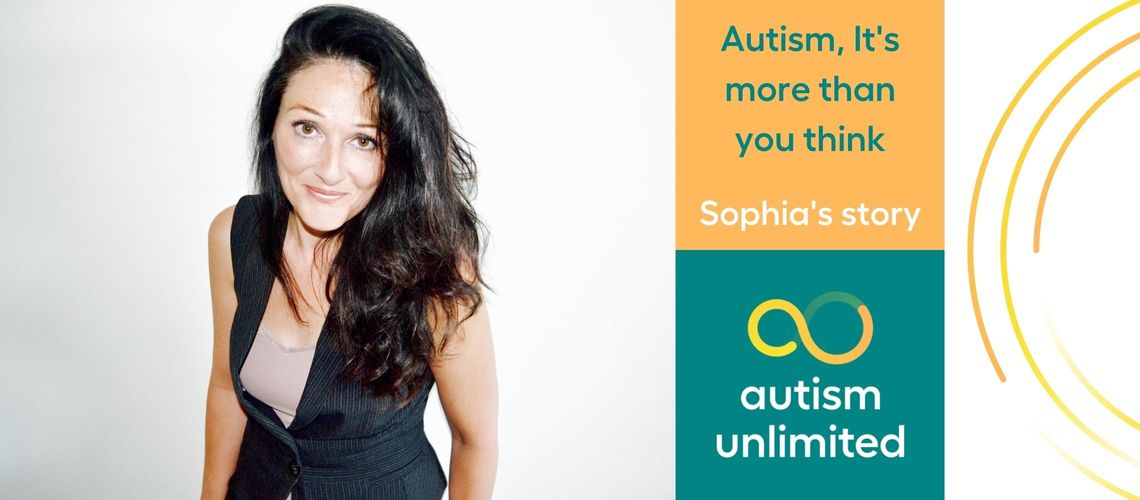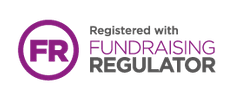Sophia's Story

"Autism in itself is not a negative, it is people’s lack of understanding and a lack of support that makes its impact so potentially damaging. My message to anyone with autism is that if I can achieve my dreams, so can you. Anything is possible."
Internationally-acclaimed opera singer Sophia Grech was diagnosed with Asperger Syndrome at the age of 45. Here, she tells how the ‘eureka moment’ helped her find inner peace and the drive to help other autistic people achieve their dreams. “My years at primary and secondary school were a challenge, both in terms of learning and also in having to try and integrate and interact with the other students in a school environment. On reflection, it was evident that the teaching staff did not identify these huge challenges. No thought or consideration was given to the fact that I clearly struggled and I quickly fell behind in learning the basics such as reading and writing.
When I was about eight years old, I saw an opera singer on television and to my amazement realised I could make the same sound. I used this to my advantage, immersing myself in the sounds and the music, pretending I was making the sounds of instruments through my voice. This was soothing and calming for me and helped to suppress the daily anxiety and frustration that school caused.
Throughout my career, both whilst studying for my degree at the Royal College of Music and thereafter, travelling internationally and performing on the world stage, neither I nor my colleagues or those closest to me knew I was autistic. I had never really considered that I may have been on the autistic spectrum. Suffice to say I thought I was ‘different’, but only in so much as I behaved in a way which was different to others. I didn’t really acknowledge why I didn’t like interacting with others, why I didn’t really understand the human psyche and wasn’t a fan of social gatherings or groups of people I didn’t know. I lived in my own little ‘bubble’ and this was where I felt safest and most secure - Why would I want to burst this and turn my life upside down?
I carried on regardless, adapting my thinking and approach depending on what the circumstances were and developing self-taught strategies to cope. A short while after I met my partner, he mentioned to me that I had unique characteristics and he thought I may be on the autistic spectrum. He encouraged me and supported me to initiate the process with a view to a diagnosis, initially through my GP. This progressed quite rapidly and I was subsequently signposted to see a psychologist who provided me with my diagnosis. Being diagnosed with Asperger’s at the age of 45 was a complete revelation to me - my ‘eureka’ moment. Suffice to say it was a lot to digest. But it provided so many missing pieces of my jigsaw, helping me to understand who I am and giving me the clarity I always sought. It also gave me a sense of new-found peace as to why I had struggled on a personal level and my behaviour was ‘different’ to others.
Over the last 10 years my partner has helped and supported me. I have always been self reliant and single-minded in being able to achieve my goals but, during those times where I have found things difficult or challenging, I have always turned to those people closest to me to support me. My family has always been my biggest and strongest ally. In light of my diagnosis, people’s reactions to what I have accomplished in my career range from surprise to amazement. I have received a great deal of positive feedback about my achievements. People are shocked but are also inspired by my ability to endure all the challenges and difficulties laid at my door, whilst still having had the self-determination and desire to achieve and pursue the career that I love and cherish.
It’s interesting though that many people don’t think I ‘fit the criteria’ of someone who is autistic. Or that I don’t ‘look’ or ‘appear’ as if I have the condition. I think this shows that there are still so much information surrounding autism and those who have this lifelong condition, which is either misunderstood or misinterpreted. A lot of this is because of a lack of education and knowledge - or people drawing conclusions which are not based on fact or current research.
Some people wrongly believe that autism is a barrier and that those who are diagnosed with it are somehow less intelligent or cannot achieve at the same level as those who are neurotypical. It appears that some people even think this is a mental disability and as such that autistic individuals do not have the ability, tenacity, determination or capability to achieve in the workplace or in their daily lives - which thankfully many people know could not be further from the truth. Unfortunately, society is conditioned to focus on the negatives rather that the positives when you talk about autism. There is a lack of insight, understanding and opportunities provided to those individuals who are autistic and the focus is on how it will hold them back, rather than on exploiting the amazing talents and abilities which they do have.
I want to see this change and I believe this is very much down to altering preconceived ideas about autistic people, improving people’s understanding and knowledge of the condition and ensuring that the same opportunities are given to one and all.
Autistic children are now identified at a much younger age and therefore measures and support can be put in place to help them in their developmental years.
It is essential that colleges and other higher educational establishments, employers and businesses also embrace the untapped potential of the young generation and this needs to start at the earliest opportunity. We must promote, advertise, educate, and inspire the nation to support, provide opportunities, give apprenticeships to those who may not demonstrate the intellect, but can offer so much more.
Since my diagnosis so much has changed, both in my daily life and career. Positive changes which have greatly enhanced my life and the way I feel. I now have a far greater understanding of myself and who I am – why I behave like I do and the way I think about things. I am also less conscious of what others think about me. I don’t worry about certain things which I consider insignificant and I generally feel more relaxed and able to enjoy things more, as I understand that there is a reason for my reactions and behaviours.
It has also strengthened my resolve to be part of the cause to break down the barriers and misconceptions of autism. I have been honoured to have been asked to speak at various autism conferences and seminars where I have met other autistic people and their families. There are a number of autistic people who inspire me, especially Temple Grandin who is an American scientist and animal behaviourist. I have a very close connection and affiliation for animals and have more of an understanding of them than I do of humans. Being told I am an inspiration to autistic people and have provided them with hope, belief and the confidence to reach their goals is deeply satisfying and drives me on.
I feel exceptionally passionate about supporting autistic organisations. I feel it is my responsibility and my desire to be the voice of those who cannot be heard or have the opportunity to reach out and be represented in the world. I want to be a figurehead and leading light in the fight against injustice of the autistic community who are not given the same opportunities and career opportunities as our neurotypical partners. And that’s why I love being a Patron of Autism Unlimited, which strives to raise awareness of autism and the often amazing capabilities of autistic people and works alongside them to ensure they reach their full potential.”






